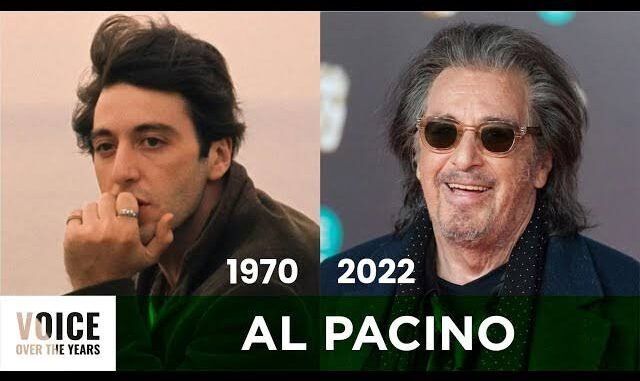
Al Pacino, a name synonymous with riveting performances and unparalleled dedication to the craft of acting, has left an indelible mark on Hollywood. His journey, spanning over five decades, is a testament to the transformative power of talent, perseverance, and an unyielding commitment to authenticity. Pacino’s influence on Hollywood is profound, reshaping the industry’s approach to character development, method acting, and the very essence of storytelling.
Born Alfredo James Pacino in 1940, Al Pacino’s rise to stardom was not without its struggles. His early years were marked by financial hardship, but his passion for acting never wavered. After honing his skills in the theater, Pacino made his film debut in “Me, Natalie” (1969). However, it was his portrayal of Michael Corleone in Francis Ford Coppola’s “The Godfather” (1972) that catapulted him to international fame. Pacino’s nuanced performance brought a new depth to the character of Michael Corleone, transforming him from a reluctant outsider to a ruthless mafia boss. This role showcased Pacino’s ability to convey complex emotions with subtlety, setting a new standard for leading men in Hollywood.
Pacino’s commitment to method acting, a technique where actors immerse themselves in their roles to deliver genuine performances, became a hallmark of his career. He studied under Lee Strasberg at the Actors Studio, where he learned to delve deeply into his characters’ psyches. This dedication is evident in his roles in “Serpico” (1973), “Dog Day Afternoon” (1975), and “Scarface” (1983). In “Serpico,” Pacino’s portrayal of a whistleblowing cop was both gritty and heartfelt, shedding light on police corruption and the personal toll of standing up for one’s principles. “Dog Day Afternoon” saw Pacino as a bank robber, delivering a performance that was both frenetic and deeply human, while “Scarface” cemented his status as an icon with his explosive depiction of Tony Montana.
Pacino’s influence extends beyond his performances. He has been a pioneer in advocating for the artistic integrity of actors. In an era when studio control often dictated an actor’s career trajectory, Pacino fought for roles that challenged him and refused to be typecast. His choices often defied Hollywood conventions, opting for projects that explored the human condition in all its complexities. This courage to take risks has inspired countless actors to pursue roles that push boundaries and defy stereotypes.
Moreover, Pacino’s impact on Hollywood can be seen in his versatility. Whether playing a blind retired Army officer in “Scent of a Woman” (1992), for which he won an Academy Award, or a weary LAPD detective in “Heat” (1995), Pacino has consistently delivered performances that are as diverse as they are compelling. His ability to inhabit such a wide range of characters has broadened the scope of what is possible in film, encouraging filmmakers to explore unconventional narratives and characters.
In conclusion, Al Pacino’s contributions to Hollywood are monumental. He has not only delivered some of the most memorable performances in cinematic history but has also redefined what it means to be a leading actor. His dedication to his craft, willingness to take risks, and insistence on authenticity have left an enduring legacy that continues to inspire and influence the industry today. Pacino’s journey from a struggling actor to a Hollywood legend is a testament to the transformative power of true artistry.
Leave a Reply